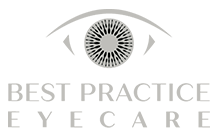Proactive Eye Care: Strategies to Slowdown the Progression of Cataracts

Discover practical tips from Dr. Michael Karpa at Best Practice Eyecare on preventing cataracts and reducing the need for surgery. Learn how lifestyle changes can protect your vision.
Proactive Eye Care: Strategies to Prevent Cataract Surgery Introduction
“Discover valuable tips from Best Practice Eyecare’s ophthalmologist, Dr. Michael Karpa, on reducing your risk of cataracts and avoiding surgery.”
Cataracts, characterised by the clouding of the eye’s lens, are a significant concern, especially for the aging population in Australia. This condition impacts more than half of Australians over 50, and nearly everyone faces this challenge by age 80.
While factors like age and genetics are beyond control, lifestyle choices and environmental factors play a substantial role in cataract development.
Under the expert guidance of Dr. Michael Karpa, a leading ophthalmologist at Best Practice Eyecare on the Sunshine Coast, we promote eye health through preventative measures.
Understanding Cataracts
Cataracts impair vision, making daily activities increasingly difficult. This condition develops gradually, often unnoticed, until significant vision impairment occurs. Understanding what contributes to cataract formation and how to mitigate these factors is essential for proactive eye care.
Comprehensive Lifestyle and Health Strategies to Prevent Cataracts: UV Protection for Your Eyes
Sunlight, particularly UV radiation, has been linked to the acceleration of cataract development. On the Sunshine Coast, where the sun shines brightly, wearing sunglasses with high UV protection and wide-brimmed hats is more than a style statement – it’s a health necessity. Ensure your sunglasses block 100% UVA and UVB rays for adequate protection. This can also reduce the risk of developing skin cancers on your eyelids and eyes.
The Impact of Smoking on Eye Health
Tobacco smoke not only harms your lungs and heart but also significantly increases the risk of cataracts. The toxins in cigarette smoke directly affect the proteins within the lens, leading to clouding. Quitting smoking can halt this progression and contribute significantly to eye health.
Nutritional Approaches to Eye Health
Diet plays a pivotal role in preventing cataracts. Foods rich in antioxidants, particularly vitamins C and E, can help protect the eyes. Dark, leafy greens, fruits, and vegetables should be staples in your diet. Like fish, foods high in omega-3 fatty acids also benefit eye health.
Regular Eye Examinations: Early Detection and Intervention
Regular eye examinations are essential for the early detection of cataracts, allowing for timely intervention and treatment. Best Practice Eyecare recommends comprehensive eye exams, particularly for individuals over 40 or those with a family history of eye diseases.
Managing Chronic Health Conditions
Chronic conditions like diabetes and hypertension can increase the risk of cataract development. Properly managing these conditions through medications, diet, and lifestyle modifications is crucial for eye health. Regular consultations with healthcare providers are recommended to manage these conditions.
The Benefits of Physical Activity
Regular exercise has been linked to a lower risk of cataracts. Physical activity improves blood circulation, which is beneficial for eye health. Incorporating walking, cycling, or swimming into your routine can help slow down the development of cataracts and other health issues, such as diabetes.
Stress Management and Eye Health
Chronic stress can negatively impact overall health, including eye health. Stress-reduction activities like yoga, meditation, or regular exercise can be beneficial for maintaining healthy vision.
The Role of Hydration
Staying well-hydrated is crucial for overall health, including eye health. Adequate hydration helps to ensure that the eyes remain lubricated and healthy, potentially reducing the risk of cataracts.
Limiting Alcohol Consumption
Excessive alcohol consumption can increase the risk of cataract development. Moderation in alcohol intake is advisable to maintain overall and eye health. Too much alcohol leads to an increased risk of falls or accidents, major causes of eye injuries and traumatic cataracts.
Preventing cataracts involves a holistic approach encompassing lifestyle modifications and regular eye care. Integrating these strategies into your daily life can significantly reduce the risk of cataract development and the need for surgery. Dr. Michael Karpa and his team at Best Practice Eyecare are committed to guiding and supporting patients on the Sunshine Coast in their journey toward maintaining optimal eye health.
For personalised advice, preventative strategies, or advanced treatment options, contact Best Practice Eyecare.
Love Your Eyes. Get Them Checked.

Best Practice Eyecare Ophthalmologists
Based on the Sunshine Coast, we provide ophthalmologist, eye care and surgical services of the highest standard. We treat and manage a wide range of eye conditions including cataracts, glaucoma and macular degeneration and more.

